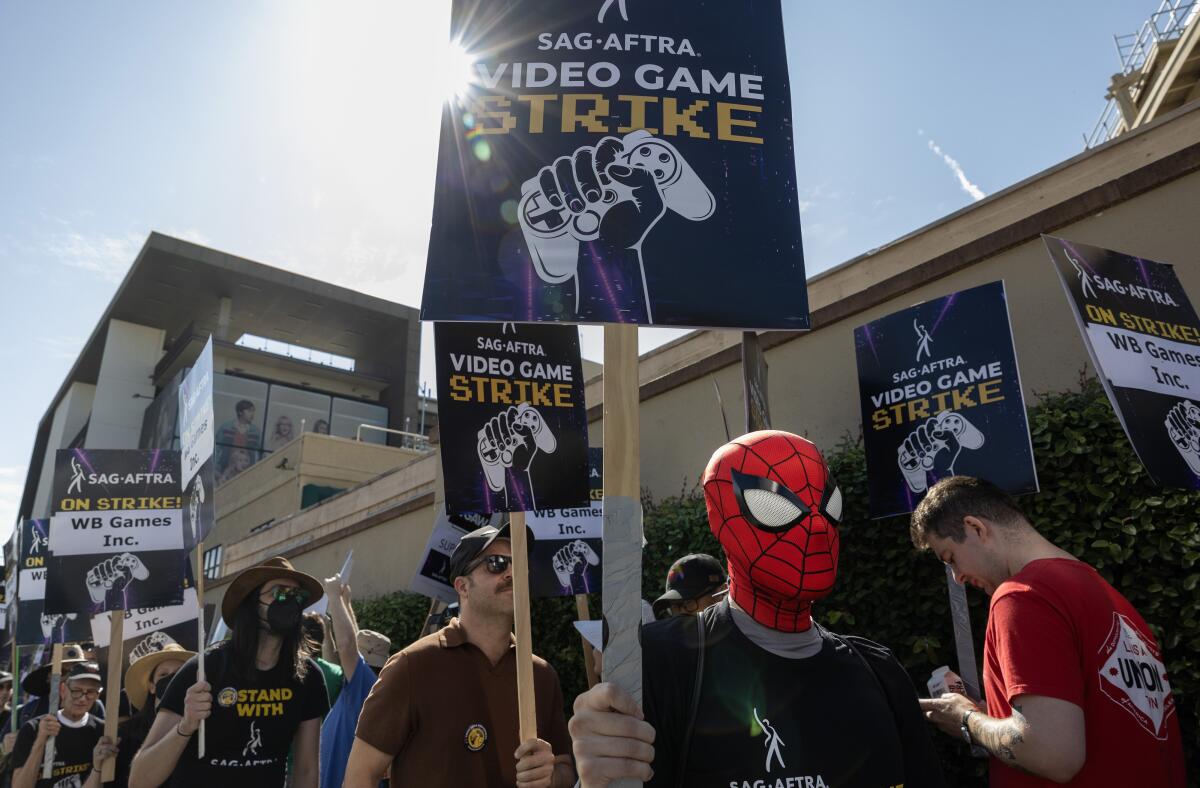The video game industry is at a crossroads as the Screen Actors Guild-American Federation of Television and Radio Artists (SAG-AFTRA) continues to negotiate terms relating to artificial intelligence (AI) amidst an ongoing strike. The implications of these negotiations are profound not only for the actors involved but for the entire gaming community. As the demand for AI technology increases, the need for clear regulations to protect the rights of performers has never been more critical.
The recent announcement from SAG-AFTRA reveals that 80 video game makers have agreed to abide by the union's proposed AI terms. This agreement marks a significant development in the negotiations, as companies like Little Bat Games and Studio Wildcard have committed to following the guidelines set forth by the union. Aiming to ensure fair working conditions, these agreements include important provisions regarding compensation, health benefits, and safety.
As the strike continues, thousands of actors and performers have been advocating for their rights, especially concerning the use of AI to replicate their voices and likenesses. The outcome of these negotiations will likely set a precedent for how AI is utilized in the gaming industry and could influence future agreements across various forms of media. The stakes are high, and the community is watching closely.

The Screen Actors Guild-American Federation of Television and Radio Artists announced Thursday that the makers of 80 video games have agreed to the union’s proposed AI terms as the video game performers’ strike rages on.
Under the condition that they abide by the union’s artificial intelligence rules, those games are now temporarily exempt from the walkout, and actors have been cleared to work on those titles during the strike. Companies that have entered AI agreements with SAG-AFTRA include Little Bat Games (“Vampire Therapist”), Studio Wildcard (“Ark: Survival Evolved”) and Lightspeed L.A. (“Last Sentinel”).
The agreements also contain provisions related to compensation, rest periods, health benefits, auditions and safety.
“The sheer volume of companies that have signed SAG-AFTRA agreements demonstrates how reasonable those protections are,” Sarah Elmaleh, chair of SAG-AFTRA’s video game negotiating committee, said in a statement.
Thousands of actors doing voice-over and motion-capture work in the video game industry have been on strike since late July when SAG-AFTRA and the companies failed to reach a resolution on artificial intelligence.
The so-called Interactive Media Agreement between the union and top game developers — including Activision, Electronic Arts, Insomniac, Blindlight, Warner Bros. and Disney — expired in November 2022.
SAG-AFTRA is seeking a deal that would require video game producers to notify and obtain consent from performers before using AI to replicate their voices, movements or likenesses. The union is also demanding that employers inform actors upfront about
Iggy Azalea Denies Sex Tape Rumors: A Closer Look At The Controversy
A Culinary Journey At Alice B. In Palm Springs
Steven Yeun: The New Paradigm Of Leading Men In Hollywood


